
Medical Surgeries
Liver Transplant
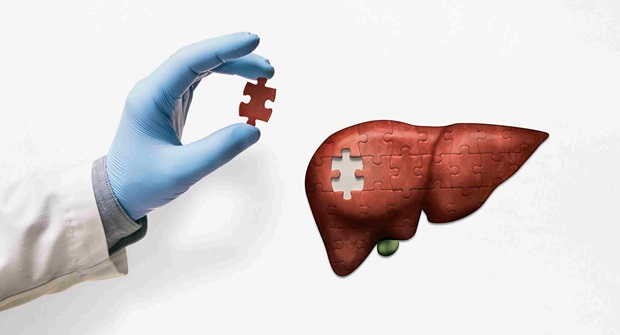

Liver transplantation is a surgical procedure in which a diseased or damaged liver is replaced with a healthy liver from a donor. The liver is a vital organ responsible for various functions, including detoxification, metabolism of nutrients, and synthesis of proteins.
Liver transplantation is typically considered for individuals with end-stage liver disease or acute liver failure when other medical treatments are no longer effective. Common reasons for liver transplantation include cirrhosis, chronic hepatitis, primary biliary cirrhosis, and certain metabolic disorders.
There are two main types of liver transplantation:
Orthotopic Liver Transplantation (OLT): This is the most common type of liver transplantation. In OLT, the diseased liver is removed, and the donor liver is placed in the same location (orthotopic) as the original liver. The surgeon connects the blood vessels and bile ducts of the new liver to the recipient's blood vessels and bile ducts.
Living Donor Liver Transplantation: In this procedure, a portion of a healthy liver is removed from a living donor (often a family member) and transplanted into the recipient. Both the donor's liver and the transplanted portion in the recipient can regenerate, allowing both individuals to eventually have fully functional livers.
Liver transplantation is a complex procedure that requires careful matching of the donor and recipient, as well as post-operative care to ensure the success of the transplant.
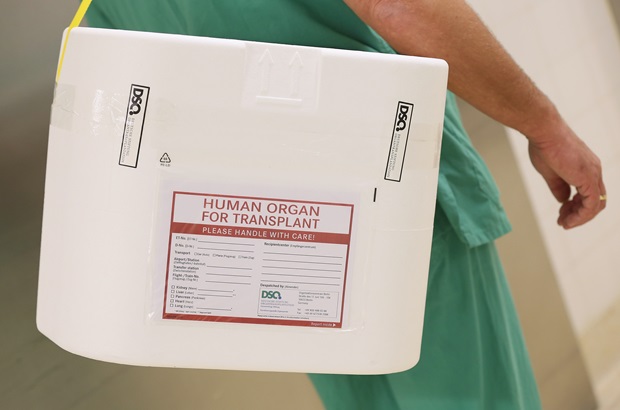

Immunosuppressive medications are often prescribed to prevent the recipient's immune system from rejecting the transplanted liver.
While liver transplantation can be a life-saving intervention, there are challenges such as the shortage of donor organs and the need for lifelong immunosuppression. Advances in medical science and technology continue to improve the success rates and outcomes of liver transplantation.
is a surgical procedure in which a diseased or damaged liver is replaced with a healthy liver from a donor. The liver is a vital organ responsible for various functions, including detoxification, metabolism of nutrients, and synthesis of proteins.
Liver transplantation is typically considered for individuals with end-stage liver disease or acute liver failure when other medical treatments are no longer effective. Common reasons for liver transplantation include cirrhosis, chronic hepatitis, primary biliary cirrhosis, and certain metabolic disorders.


When Liver transplantation is considered:
Liver transplantation is considered when a person's liver is severely damaged and no longer functions properly. The most common reasons for liver transplantation include:
End-Stage Liver Disease (ESLD): This is the most common reason for liver transplantation. ESLD occurs when the liver has sustained extensive damage, often due to chronic conditions such as cirrhosis caused by hepatitis B or C, alcoholic liver disease, non-alcoholic fatty liver disease (NAFLD), or autoimmune liver diseases.
Liver Failure: Acute liver failure can occur suddenly, often due to viral hepatitis, drug-induced liver injury, or other acute liver diseases. In such cases, a liver transplant may be necessary if the liver cannot regenerate and resume normal function.
Liver Tumors: Liver transplantation may be considered for individuals with liver cancer (hepatocellular carcinoma) that meets specific criteria. In some cases, transplantation may be the best option for treating liver tumors.
Congenital Liver Diseases: Some individuals are born with genetic disorders that affect the liver's function. In these cases, a liver transplant may be considered to provide a functional liver.
Metabolic Liver Diseases: Certain metabolic disorders can lead to liver damage over time. In some cases, a liver transplant may be recommended to address the underlying metabolic issue.
Cholangiocarcinoma: This is a rare type of cancer that can occur in the bile ducts. In some cases, a liver transplant may be considered if the tumor is limited to the liver and meets specific criteria.
Liver transplantation is a complex procedure and is typically considered when other medical treatments are no longer effective. The decision to undergo a liver transplant is made by a team of healthcare professionals, including hepatologists, transplant surgeons, and other specialists, based on a careful assessment of the individual's medical condition.
WHAT IS THE LIVER TRANSPLANT SURVIVAL RATE?
According to the Organ Procurement and Transplantation Network (OPTN) and the Scientific Registry of Transplant Recipients (SRTR) in the United States, one-year survival rates for liver transplant recipients were around 90% or higher, and three-year survival rates were around 80-85%. However, these figures can vary, and it's essential to note that individual cases may differ.
IS THERE AN AGE RESTRICTION FOR LIVER TRANSPLANT PROCEDURE?
There is no strict age restriction for liver transplant procedures. The eligibility for a liver transplant depends on various factors such as the overall health of the patient, the severity of liver disease, and the presence of other medical conditions. Transplant centers typically assess each patient on a case-by-case basis.
However, age can be a consideration in the evaluation process. Older individuals may face additional health challenges, and transplant centers may weigh the potential benefits of the procedure against the risks associated with age-related health issues. In some cases, older individuals may still be considered suitable candidates for liver transplantation if they are otherwise healthy. Usually, the donor must be between the ages of 18 and 60
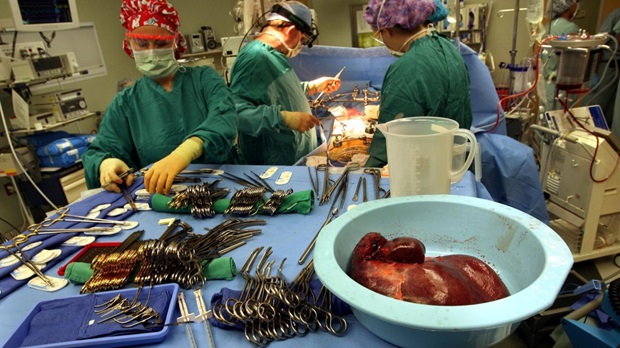



ARE CHILDREN ALLOWED TO HAVE A LIVER TRANSPLANT?
Yes, children can undergo liver transplantation under certain circumstances. Liver transplantation is a medical procedure performed to replace a diseased or damaged liver with a healthy liver from a deceased or living donor. In the case of children, liver transplantation may be considered when they have severe liver diseases or conditions that cannot be effectively treated with other medical interventions.
The decision to perform a liver transplant on a child is typically made after a thorough evaluation by a medical team, which includes assessing the child's overall health, the severity of the liver disease, and the likelihood of success with transplantation. Additionally, the availability of suitable donors, either living or deceased, is a crucial factor.
Pediatric liver transplantation has been performed successfully in many cases, and advancements in medical technology and surgical techniques have improved the outcomes for young recipients. The eligibility and criteria for liver transplantation in children can vary based on the specific medical condition and the policies of the transplant center or hospital. Parents and caregivers need to consult with a pediatric liver transplant team to determine the best course of action for their child's specific situation.
What happens during the assessment?
A liver transplant assessment is a comprehensive process that helps medical professionals determine whether a patient is a suitable candidate for a liver transplant. The assessment involves a series of medical, psychological, and social evaluations to ensure that the potential recipient is both physically and emotionally prepared for the transplant and can adhere to the post-transplant care requirements. Here are the key components of a liver transplant assessment:
Medical Evaluation:
• Medical History: A detailed medical history is taken to understand the patient's overall health, previous illnesses, and any relevant medical conditions.
• Physical Examination: A thorough physical examination is conducted to assess the patient's current health status and identify any potential issues.
• Diagnostic Tests: Blood tests, imaging studies (such as CT scans and MRIs), and other diagnostic tests are performed to assess the severity of liver disease, evaluate the function of other organs, and identify any contraindications to transplantation.




Psychological and Psychiatric Evaluation:
• Mental Health Assessment: A mental health professional assesses the patient's psychological well-being, including their ability to cope with the stress of the transplant process.
• Social Support: The patient's support system and ability to adhere to post-transplant care plans are evaluated. This may include assessing family dynamics and the availability of a caregiver.
Substance Abuse Evaluation:
• Patients are screened for alcohol or substance abuse, as these can impact the success of the transplant and the patient's ability to adhere to the required lifestyle changes.
Nutritional Evaluation:
• Nutritional status is assessed to ensure that the patient is well-nourished and able to recover successfully from the transplant surgery.
Cardiac and Pulmonary Evaluation:
• The heart and lung function are assessed to ensure that the patient can tolerate the stress of surgery and the post-transplant recovery process.
Cancer Screening:
• Patients are screened for the presence of any cancers to ensure that there are no contraindications to transplantation.
Immunological Evaluation:
• The patient's immune system compatibility is assessed to minimize the risk of rejection after transplantation.
Financial and Insurance Evaluation:
• Financial and insurance considerations are discussed to ensure that the patient can afford the costs associated with the transplant and post-transplant care.
Once all assessments are complete, a multidisciplinary transplant team, including surgeons, hepatologists, psychologists, and other specialists, reviews the findings to determine whether the patient is an appropriate candidate for a liver transplant. If approved, the patient is then placed on the transplant waiting list until a suitable donor organ becomes available.
IS IT ESSENTIAL FOR THE BLOOD TYPE OF THE DONOR AND THE PATIENT TO BE COMPATIBLE?
Yes, blood type compatibility is essential in blood transfusions and organ transplants to prevent adverse reactions. The major blood group systems include ABO and Rh factor. The ABO system classifies blood into four types: A, B, AB, and O. The Rh factor can be either positive (+) or negative (-).
For blood transfusions:
ABO Compatibility:
• Type A blood can receive A or O blood.
• Type B blood can receive B or O blood.
• Type AB blood can receive A, B, AB, or O blood.
• Type O blood can only receive O blood.
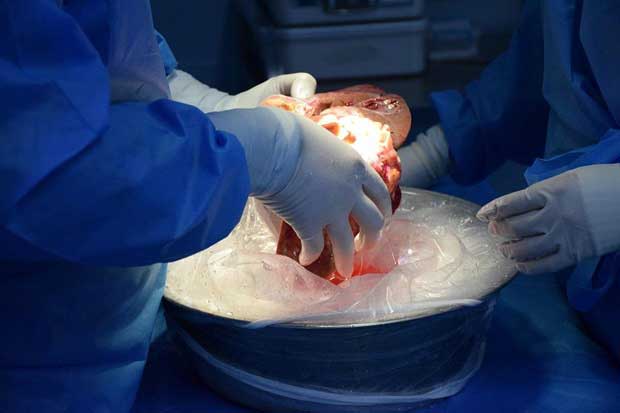

Rh Compatibility:
• Rh-positive individuals can receive Rh-positive or Rh-negative blood.
• Rh-negative individuals should ideally receive Rh-negative blood, but they can receive Rh-positive blood in certain situations.
For organ transplants, the compatibility requirements are more complex, involving additional factors beyond blood type. These factors include tissue compatibility, human leukocyte antigens (HLA) matching, and other immunological considerations. While ABO compatibility is crucial, other factors play a significant role in determining the success of an organ transplant.
It's important for healthcare professionals to carefully match the blood type and other relevant factors to ensure the safety and effectiveness of transfusions and transplants. Blood type incompatibility can lead to serious complications, including hemolysis (destruction of red blood cells) and other adverse reactions.
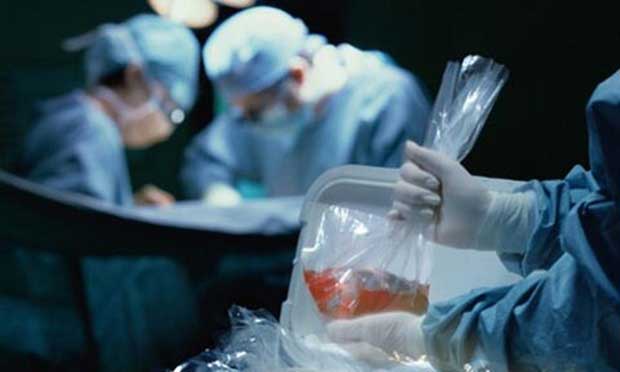

HOW IS THE LIVER TRANSPLANT PROCEDURE DONE?
A liver transplant is a surgical procedure in which a damaged or diseased liver is replaced with a healthy liver from a donor. The liver is a vital organ responsible for various functions, including detoxification, metabolism, and the production of proteins necessary for blood clotting.
Here is an overview of the liver transplant procedure:
Evaluation and Selection:
Donor Evaluation:
• Living donors or deceased donors may be considered.
• Compatibility factors, such as blood type and size compatibility, are crucial.
Patient Evaluation:
• Patients with end-stage liver disease are evaluated to determine if a transplant is necessary.
• Evaluation includes medical history, physical examination, and various tests to assess the severity of liver disease.
Waiting for a Donor:
• For deceased donor transplants, patients often need to wait on a transplant list until a suitable liver becomes available.
• During this waiting period, patients are closely monitored.
Transplant Surgery:
• Anesthesia: The patient is put under general anesthesia.
• Incision: A surgical team makes an incision in the abdomen, providing access to the liver.
Removal of Diseased Liver:
• The damaged liver is carefully disconnected from the blood vessels and bile ducts.
• The surgeon ensures minimal blood loss during this process.
Implantation of Donor Liver:
• The healthy donor liver is placed into the recipient's body.
• Blood vessels and bile ducts are connected to the new liver.
Monitoring and Closure:
• The surgical team monitors the new liver to ensure proper blood flow and function.
• The incision is closed.
Postoperative Care:
• Patients are closely monitored in the intensive care unit (ICU) initially.
• Immunosuppressive medications are prescribed to prevent rejection of the transplanted liver.
• Recovery and rehabilitation involve careful monitoring for complications.
Follow-up:
• Patients have regular follow-up appointments to monitor liver function and adjust medications.
• Long-term care involves managing potential complications and ensuring the overall well-being of the patient.
WHAT ARE THE COMPLICATIONS OF LIVER TRANSPLANT SURGERY?
Liver transplant surgery is a complex procedure that can be associated with various complications. While advancements in medical science and surgical techniques have improved outcomes, complications can still arise. Some of the main complications of liver transplant surgery include:
Rejection: The body's immune system may recognize the transplanted liver as foreign and attempt to attack it. Immunosuppressive medications are prescribed to prevent rejection, but sometimes it can still occur.
Infection: Due to the suppression of the immune system, transplant recipients are at an increased risk of infections. These can include bacterial, viral, or fungal infections.
Bleeding: Surgery involves cutting blood vessels, and bleeding can occur during or after the procedure. In some cases, patients may require additional surgery to address bleeding.
Blood Clots: Blood clot formation in the blood vessels of the liver or other parts of the body can occur, leading to serious complications.
Biliary Complications: Problems with the bile ducts, such as leaks or strictures, can occur. This may necessitate further procedures to correct these issues.
Primary Graft Non-function (PGNF): In rare cases, the transplanted liver may not function properly immediately after surgery. This may require urgent retransplantation.
Hepatic Artery Thrombosis: This is the formation of blood clots in the hepatic artery, which can lead to loss of blood supply to the transplanted liver.
Renal Dysfunction: Some patients may experience temporary or permanent kidney problems due to the use of immunosuppressive medications or other factors.
Metabolic Issues: Transplant recipients may experience metabolic complications, such as diabetes or disturbances in electrolyte balance.
Neurological Complications: Issues such as confusion or seizures can occur, particularly in the immediate postoperative period.
Cancer: Immunosuppressive medications can increase the risk of certain cancers, including skin cancer and lymphoma.
Side Effects of Medications: The medications used to prevent rejection and manage other post-transplant issues can have side effects, including weight gain, high blood pressure, and osteoporosis.
IS THERE A PREFERRED DIET AFTER LIVER TRANSPLANT surgery?
After a liver transplant, maintaining a healthy and well-balanced diet is crucial to support overall health, prevent complications, and promote the proper functioning of the transplanted liver. However, it's important to note that specific dietary recommendations can vary based on individual health conditions and the advice of healthcare professionals. Always consult with your transplant team for personalized guidance. That being said, here are some general principles often recommended for individuals post-liver transplant:
Balanced Diet: Aim for a well-balanced diet that includes a variety of nutrient-dense foods from all the major food groups. This includes fruits, vegetables, whole grains, lean proteins, and low-fat dairy.
Limit Sodium Intake: Controlling sodium intake is crucial to manage fluid balance and prevent conditions like fluid retention and high blood pressure. This involves avoiding high-sodium processed foods and using herbs and spices for flavor instead of salt.
Protein Intake: Adequate protein is essential for healing and maintaining muscle mass. Include lean protein sources such as poultry, fish, tofu, legumes, and dairy in your diet.
Hydration: Drink plenty of fluids, especially water, to stay hydrated. However, be cautious with excessive fluid intake, as it can be a concern for those with compromised kidney function.
Limit Fat Intake: Limit saturated and trans fats, and focus on healthy fats such as those found in avocados, nuts, seeds, and olive oil. This can help manage cholesterol levels.
Avoid Alcohol and Certain Medications: Alcohol consumption should be strictly avoided after a liver transplant, as it can harm the new liver. Additionally, some medications may interact negatively with alcohol.
Monitor Blood Sugar Levels: If you have diabetes, it's important to manage blood sugar levels to prevent complications. This may involve monitoring carbohydrate intake and taking insulin or other medications as prescribed.
Vitamin and Mineral Supplements: Depending on individual needs, your healthcare team may recommend specific vitamin and mineral supplements to ensure nutritional adequacy. Common supplements include vitamin D and calcium.
WHAT IS LIVER TRANSPLANT REJECTION?
Liver transplant rejection refers to the body's immune system attacking and damaging the newly transplanted liver. The immune system's primary function is to defend the body against foreign substances, including transplanted organs. In the case of liver transplantation, rejection occurs when the recipient's immune system perceives the transplanted liver as a threat and attempts to eliminate it.
There are two main types of liver transplant rejection:
Acute Rejection:
- This is a rapid and severe immune response that typically occurs within the first few weeks to months after transplantation.
- Symptoms may include fever, jaundice, dark urine, and general malaise.
- Acute rejection is usually treatable with increased immunosuppressive medications, and close monitoring can help identify and address rejection early.
Chronic Rejection:
- This is a slower and ongoing immune response that can develop over months to years after transplantation.
- Chronic rejection can lead to progressive damage to the transplanted liver, eventually compromising its function.
- Treatment for chronic rejection is challenging, and in some cases, it may lead to the need for a second transplant.
To prevent rejection, transplant recipients are prescribed immunosuppressive medications. These drugs suppress the immune system's activity, reducing the likelihood of it attacking the transplanted organ. However, finding the right balance of immunosuppression is crucial, as too little may result in rejection, while too much may increase the risk of infections and other complications.
Regular monitoring of liver function, along with immunosuppressive drug adjustments, helps manage and prevent rejection. Transplant recipients need to adhere to their medication regimen and attend regular follow-up appointments with their healthcare team to detect and address rejection early on. Despite these measures, rejection can still occur, and ongoing research aims to improve strategies for preventing and treating rejection in liver transplantation.
What are the signs of liver rejection?
Liver rejection is a concern following liver transplantation. It occurs when the recipient's immune system recognizes the transplanted liver as foreign and mounts an immune response against it. The signs and symptoms of liver rejection can vary, and they may not always be immediately apparent. Here are some potential signs:
Jaundice: Yellowing of the skin and eyes due to the buildup of bilirubin. Jaundice is a common sign of liver dysfunction.
Dark urine: The presence of dark-colored urine may indicate liver problems.
Pale-colored stools: Light-colored stools can result from a lack of bilirubin reaching the intestines due to liver dysfunction.
Fatigue: General fatigue and weakness can be symptoms of liver rejection.
Abdominal discomfort: Pain or discomfort in the abdominal area may occur.
Swelling: Swelling or fluid retention, especially in the abdomen and legs, can be a sign of liver dysfunction.
Changes in mental function: Confusion, difficulty concentrating, or changes in mental alertness may occur.
Fever: An elevated body temperature may indicate an inflammatory response.
Decreased appetite: Loss of appetite or weight loss may be observed.
Why Iran:
Iran has gained recognition for its success and advancements in the field of organ transplantation, including liver transplants. Several factors contribute to Iran's suitability for liver transplantation:
Organ Donation System: Iran has a unique system for organ donation called the "Iranian Model." This system relies on voluntary organ donations without any financial incentives for donors. The government, religious leaders, and the general public actively support and promote organ donation, creating a relatively robust organ supply.
Legal Framework: Iran has a legal framework that supports organ transplantation. The government has established regulations and guidelines to govern the organ donation and transplantation process, ensuring ethical standards and proper medical procedures.
Skilled Medical Professionals: Iran has highly skilled medical professionals, including surgeons, transplant specialists, and support staff, who are experienced in performing complex liver transplant surgeries. Many Iranian medical professionals have received training and education from reputable international institutions.
Medical Infrastructure: Iran has invested in modern medical infrastructure, including well-equipped hospitals and transplant centers. These facilities are designed to handle organ transplantation procedures, including the necessary pre-operative and post-operative care.
Research and Development: Iran has made significant strides in medical research related to organ transplantation. This includes advancements in immunosuppressive medications, surgical techniques, and post-transplant care, contributing to the success and survival rates of liver transplant recipients.
Cost Effectiveness: The cost of medical procedures, including liver transplantation, is often more affordable in Iran compared to some Western countries. This makes it an attractive option for individuals seeking quality medical care at a reasonable cost.
International Collaboration: Iran has actively engaged in international collaborations and partnerships in the field of organ transplantation. This collaboration allows for the exchange of knowledge, expertise, and resources, further enhancing the quality of medical services.
Surgery Details
 Anesthesia: General
Anesthesia: General Recovering: 4– 6 weeks
Recovering: 4– 6 weeks Duration of Action:about 4 – 5 hours
Duration of Action:about 4 – 5 hours Hospitalization: 4 – 5 days
Hospitalization: 4 – 5 days Back to Work: about 8 weeks
Back to Work: about 8 weeks Cost: From $35000
Cost: From $35000


Our services include:
![]() our online services include: quotes and consultation
our online services include: quotes and consultation
![]() Planning the highest word-level medical trips and quality hospitals and medical centers according to the patient's request and budget.
Planning the highest word-level medical trips and quality hospitals and medical centers according to the patient's request and budget.
![]() Appointing treatments by the most skilled and experienced doctors.
Appointing treatments by the most skilled and experienced doctors.
![]() Airport pick-up/drop off, check-ups, accompanying translator, book hotel (for patients and their families)
Airport pick-up/drop off, check-ups, accompanying translator, book hotel (for patients and their families)
![]() Pre-hospitalization / post-hospitalization care services
Pre-hospitalization / post-hospitalization care services
All-Inclusive Medical Travel Packages
based on your budget, our team will assist you in choosing the best hotels, doctors, and medical centers. Our packages include:
 Airport Pickup Services
Airport Pickup Services Airport Dropoff services
Airport Dropoff services Hotel
Hotel Ticket
Ticket visa
visa translator
translator Transfer
Transfer SIM Card
SIM Card Sightseeing
Sightseeing


 why Iran
why Iran
Patients may choose to have abdominoplasty (commonly known as a tummy tuck) in Iran for a variety of reasons
Cost, Quality of Care, Privacy and Discretion, Combined Tourism, no Waiting Times
![]()
Fotros is an Iranian health tourism company with a professional team consisting of a support team and word-level doctors in medical and cosmetic surgeries like Neurosurgery, Rhinoplasty, Breast cosmetic surgeries, Liposuction, tummy tuck, etc.
















 why Iran
why Iran